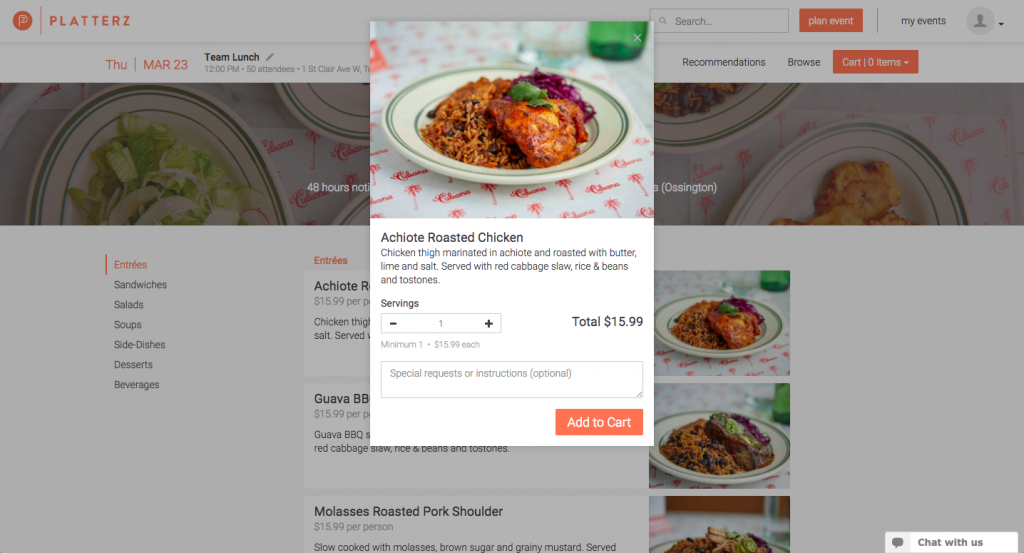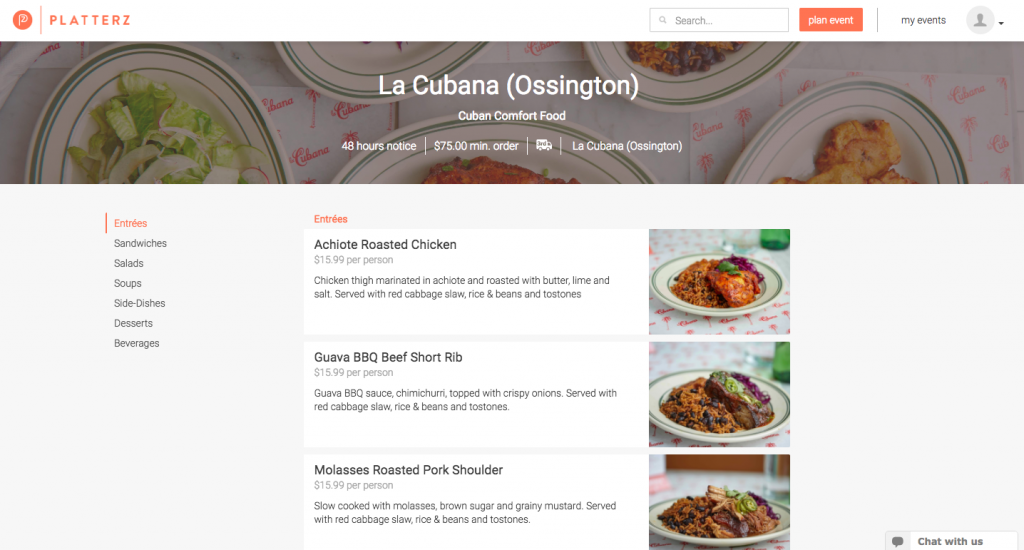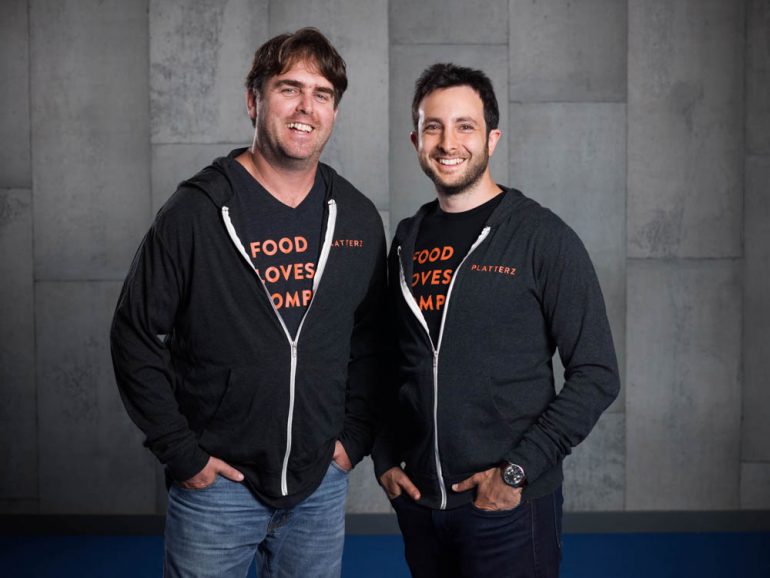Toronto-based Platterz knows they’re working in a crowded marketplace; whether you’re looking to skip a lineup before ordering food for lunch, or looking for food delivery to the office, there really is no shortage of food startups looking to become the next big convenient thing.
So how does a food startup distinguish themselves from all the rest? The founders of Platterz, on the heels of a $6.7 million seed round, believes that their distinction is in focusing on automation. Co-founder and president Yishay Waxman recalls first meeting co-founder and CEO Eran Henig, who co-founded Toronto-based Tradyo before selling it to Metroland in 2014, as the impetus for the startup’s origins.
“He [Eran] said to me, what do you think of food tech? [And I said], I’ve seen so much going on in the on-demand consumer space, everyone geared toward logistics, delivery. There’s certainly a lot of stuff going on in the home delivery front,” said Waxman. “Eran said, in New York, it was a shitshow trying to order food for the office. Nobody has really done anything innovative around corporate catering software. Certainly, there’s some folks out there doing corporate catering, but no one’s really taking a software approach to solving this problem.”

The company’s funding round includes investors AltaIR Capital, Globalive Capital, Kevin Kimsa, Dennis Bennie, Ran Makavy, and Oren Zeev. Platterz, which currently only operates in Toronto and Kitchener-Waterloo, allows companies to search through a marketplace of food vendors and order according to specifications like budget, dietary restrictions, and total number of people.
Usually, an office assistant would have to research what restaurants are good, spend time on the phone with each restaurant, and go through the menu trying to figure out which items fit into a budget — a time-consuming endeavour that can take hours. With Platterz, companies can schedule an order for specific days and times.
“Once the budget kicks in, it becomes complex. We implemented that into the system where they could set up — we have a bronze, silver and gold program — and then we know the ordering behaviour, we know the company profile, and our system learned already how to build a proper meal and it keeps doing it for everyone.”
Platterz, which is currently working on a Slackbot, is also developing machine learning capabilities on the platform. The company’s platform will learn what kind of food to recommend based on a customer’s past orders and preferences, to the point where they can select an “I’m feeling lucky” option, or order in just two clicks when the software saves past orders.

The platform will also let users distinguish between team lunches and executive meetings, taking into account that both types of events have different expectations in terms of presentation and timeliness. Platterz plans to launch these features in May.
“Some of the other players call themselves corporate caterers, but it’s individual ordering. You put a budget in each employees account, $10 to $15, and order food. In our world, that’s not corporate catering,” said Waxman.
At the same time, the company says that its marketplace, family-style order approach allows smaller family-owned restaurants to compete on the same playing field as larger franchises more likely to get catering orders due to their name brand.
“We are hooked 24/7 to a monitor. We’re social beings. Why can’t we be that for at least one hour a day?”
“What we’ve created is such stickiness,” said Waxman. The company plans to use the funding to fuel global expansion of the platform, which the co-founders say can be quickly introduced into any market without boots on the ground, since restaurants are responsible for handling their own delivery (Platterz works with restaurants to find third party delivery services if restaurants don’t already have one).
“We literally have companies that everyday order for 200 people through the platform. A lot of companies just order once every Friday. And our users are different, you’ve got the perks for employees, and then you’ve got office meetings, you’ve got lunches.”
For the co-founders, it’s about building a company culture around food. Waxman said that as millennials enter the workforce and become excited to work on companies with a strong set of values, they’re bringing a more community-minded mindset to the companies that hire them.
“We are hooked now, 24/7, to a monitor,” said Henig. “And if it is at 12 p.m., you can get all your employees together, eating, getting away from cell phones; I don’t like people being on their cell phones during lunch. Twelve p.m., we have lunch, everyone go and eat and talk with each other. We’re social beings. Why can’t we be that for at least one hour a day? A company should enforce that.”


